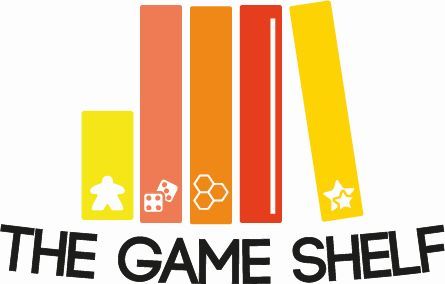Publisher: Mindware
Designer: Susan McKinley
Ross
Year: 2006
Qwirkle is an abstract strategy game that I would say has managed to cross the line into the mass market. I say this because I picked up my copy at a car boot sale and have since seen it a few times at car boot sales and in charity shops. In general, if a game has mass market appeal, it’s probably a bit too simple for ‘gamers’ like us and probably many who read this blog, but does Qwirkle have enough appeal to keep a spot in our collection?
In Qwirkle there are 6
different colours and 6 different symbols depicted on individual, chunky wooden
tiles. The tiles must be laid out either in lines of all the same colour, but
unique symbols or all the same symbol in unique colours. Each player has a hand
of 6 tiles and can add a tile or group of tiles to the table on their turn, the
tiles must build in one line attached to the tiles already played. Scoring is
based on the total length of the line (or lines) that were added to. Extra
bonus points are available when a complete line of 6 unique symbols is
completed. This is called a ‘Qwirkle’
and is worth 12 points.
When you play tiles, you replenish your hand up to 6 and the game ends
when the stock of tiles has been depleted and players can no longer make legal
moves. The scores obtained throughout the game are added and the player with
the highest total score is the winner.
 |
| A two-player game in progress. |
Qwirkle’s rules are
incredibly simple – sort of combining dominoes and scrabble to make a game that
tests your visual ability to spot the most optimal spots for play where you can
create many crossovers to trigger many points. Often, winning the game really
comes down to luck of the draw though. There are times in the game where it’s
hard not to leave an open opportunity for your opponents with a line of 4/5 and
they will be lucky enough to have the correct symbols to complete their Qwirkle.
On the outside looking in at the games we like to play, Qwirkle looks too simple and uninspiring,
but for some reason it still gets played. I think there are 3 reasons for this;
1.
It has great
component quality – in particular the chunky tiles allow us to play this game
outside in the garden meaning I can combine sun worshipping with a game on
those infrequent sunny moments in the UK.
2.
It’s really easy to
teach and provides family with a way to access our hobby whilst still getting the
satisfaction that they’ve played one of ‘our kinds of game’.
3.
It scales really
easily at the different player counts and is the same short length at all
player counts, so is a reliable, quick game where enjoyment doesn’t really rely
on us being in a particular mood to play.
Qwirkle definitely isn’t one of our favourite games, but
it’s a staple of our collection and deserves a solid 6.5/10.


No comments:
Post a Comment